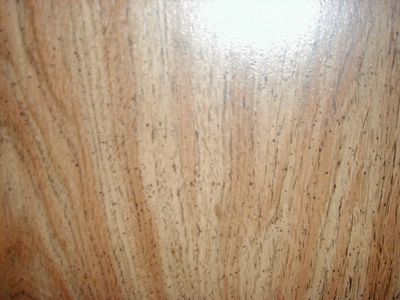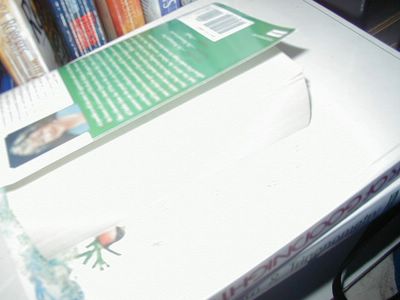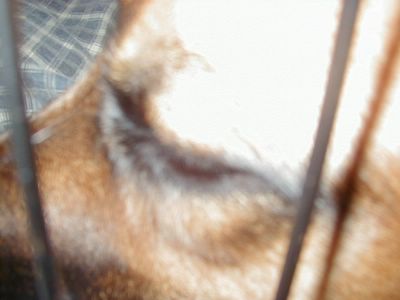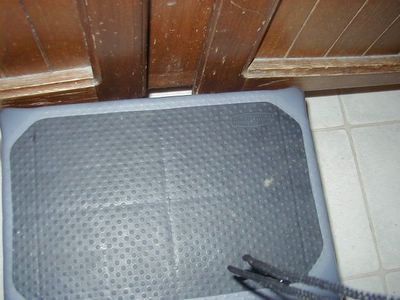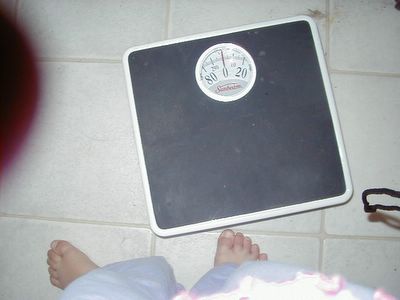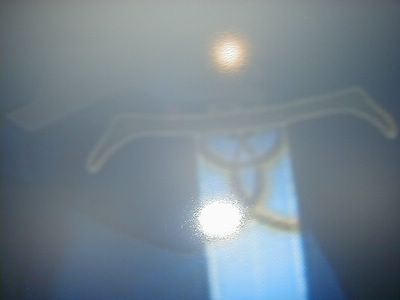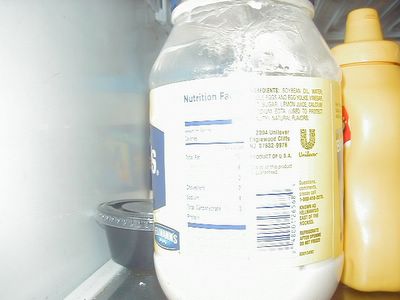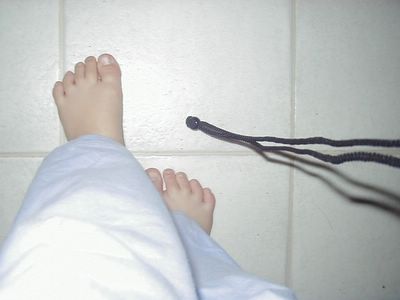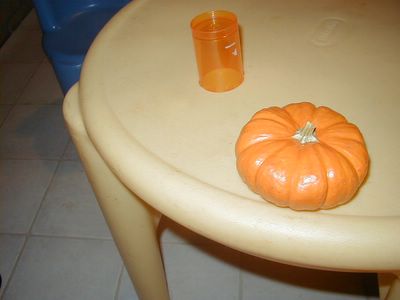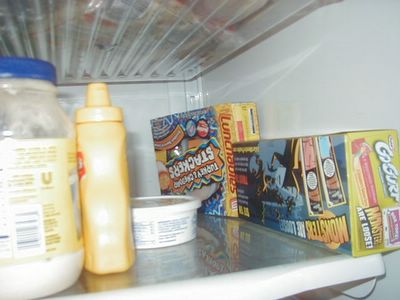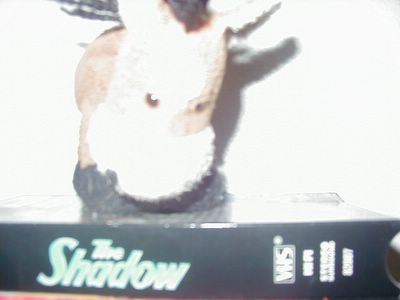Rock tumbler
Sweat Pants
Teva thongs
undies
Heater and tables for greenhouse
Huskey pressure washer
California King
Swim suit
Sunday, October 29, 2006
Saturday, October 28, 2006
Her name was Magil, She called herself Lil, But every one new her as Nancy...
Doing some work from home today and taking a little break. I'm going to copy and paste an interesting email I got from my Mom:
Most people got married in June because they took their yearly bath in May, and still smelled pretty good by June. However, they were starting to smell, so brides carried a bouquet of flowers to hide the body odor.
Hence the custom today of carrying a bouquet when getting married.
Baths consisted of a big tub filled with hot water. The man of the
house had the privilege of the nice clean water, then all the other sons and men, then the women and finally the children, last of all the babies. By then the water was so dirty you could actually lose someone in it. Hence the saying, "Don't throw the baby out with the bath water."
Houses had thatched roofs - thick straw-piled high, with no wood
underneath. It was the only place for animals to get warm, so all
the cats and other small animals (mice, bugs) lived in the roof. When it rained it became slippery and sometimes the animals would slip off the roof. Hence the saying "It's raining cats and dogs."
There was nothing to stop things from falling into the house. This
posed a real problem in the bedroom where bugs and other droppings could mess up your nice clean bed. Hence, a bed with big posts and a sheet hung over the top afforded some protection. That's how canopy beds came into existence.
The floor was dirt. Only the wealthy had something other than dirt. Hence the saying "dirt poor." The wealthy had slate floors that would get slippery in the winter when wet, so they spread thresh (straw) on the floor to help keep their footing. As the winter wore on, they added more thresh until when you opened the door it would all start slipping outside. A piece of wood was placed in the entranceway. Hence the saying a "thresh hold."
In those old days, they cooked in the kitchen with a big kettle that always hung over the fire. Every day they lit the fire and added things to the pot. They ate mostly vegetables and did not get much meat. They would eat the stew for dinner, leaving leftovers in the pot to get cold overnight and then start over the next day. Sometimes stew had food in it that had been there for quite a while. Hence the rhyme, "Peas porridge hot, peas porridge cold, peas porridge in the pot nine days old." Sometimes they could obtain pork, which made them feel quite special. When visitors came over, they would hang up their bacon to show off. It was a sign of wealth that a man could "bring home the bacon." They would cut off a little to share with guests and would all sit around and "chew the fat." Those with money had plates made of pewter. Food with high acid content caused some of the lead to leach onto the food, causing lead poisoning death. This happened most often with tomatoes, so for the next 400 years or so, tomatoes were considered poisonous. Bread was divided according to status.
Workers got the burnt bottom of the loaf, the family got the middle, and guests got the top, or "upper crust." Lead cups were used to drink ale or whisky. The combination would sometimes knock the imbibers out for a couple of days. Someone walking along the road would take them for dead and prepare them for burial. They were laid out on the kitchen table for a couple of days and the family would gather around and eat and drink and wait and see if they would wake up. Hence the custom of holding a "wake." England is old and small and the local folks started running out of places to bury people. So they would dig up coffins and would take the bones to a "bone-house" and reuse the grave. When reopening these coffins, 1 out of 25 coffins were found to have scratch marks on the inside and they realized they had been burying people alive. So they would tie a string on the wrist of the corpse, lead it through the coffin and up through the ground and tie it to a bell. Someone would have to sit out in the graveyard all night (the "graveyard shift")to listen for the bell; thus, someone could be "saved by the bell" or was considered a "dead ringer."
Word of the day: FIZZLE
Lexie log: The adventerous days of Lexie has begun...Thursday at the gym...We went to pick up Lexie from the childcare area, and were notified by the one of the girls that Lexie had pushed another little girl of the top of the foam benches, about two feet off the ground, and the girl landed on her head. They said they had to write it on her record and I had to initial it. They assured me that this happens all the time and that they keep record of it for all the kids. They also said that if she continues to act this way that she could be suspended, but I doubt that will happen. The girl also said that Lexie was in tears about the whole thing the moment the girl fell. Ok, so this week has been a test. Last night I walked into the bedroom and it reaked of Fabreeze, enough to give a person a headache. I scolded Lexie for using it, then in about 15 minutes I was holding Tiki, in a different room, wondering why the smell wouldn't go away when I put face in his fur and realized she had sprayed it on him! I carried Tiki into the kitchen to bathe him in the sink, and what should I see? A small childrens chair on the floor by the sink, and a small child perched up on the counter top, right next to the kitchen knives, with her little legs swinging over the side. She looked at me, and without a care in the world said, "Mommy, will you help get me down from here?" Well now, my eyes did get wide, and I pointed towards her room. I explained with a edge to my voice the dangers of playing with chemicals, especially spraying them on animals, the danger of climbing the counters, and that she should never touch the kitchen knives. Apparantly she saw that Daddy had put the chocolate at the far back corner of the counter, and that was her goal. She was in tears as she went to her room and didn't get any candy. She sure has spunk.
Today I'm grateful for Frank and Lexie, Mom and Dad, Gramma Betty, Patty, our animals, weekends, working from home, coffee, family, my avacado tree's new home, and life.
Most people got married in June because they took their yearly bath in May, and still smelled pretty good by June. However, they were starting to smell, so brides carried a bouquet of flowers to hide the body odor.
Hence the custom today of carrying a bouquet when getting married.
Baths consisted of a big tub filled with hot water. The man of the
house had the privilege of the nice clean water, then all the other sons and men, then the women and finally the children, last of all the babies. By then the water was so dirty you could actually lose someone in it. Hence the saying, "Don't throw the baby out with the bath water."
Houses had thatched roofs - thick straw-piled high, with no wood
underneath. It was the only place for animals to get warm, so all
the cats and other small animals (mice, bugs) lived in the roof. When it rained it became slippery and sometimes the animals would slip off the roof. Hence the saying "It's raining cats and dogs."
There was nothing to stop things from falling into the house. This
posed a real problem in the bedroom where bugs and other droppings could mess up your nice clean bed. Hence, a bed with big posts and a sheet hung over the top afforded some protection. That's how canopy beds came into existence.
The floor was dirt. Only the wealthy had something other than dirt. Hence the saying "dirt poor." The wealthy had slate floors that would get slippery in the winter when wet, so they spread thresh (straw) on the floor to help keep their footing. As the winter wore on, they added more thresh until when you opened the door it would all start slipping outside. A piece of wood was placed in the entranceway. Hence the saying a "thresh hold."
In those old days, they cooked in the kitchen with a big kettle that always hung over the fire. Every day they lit the fire and added things to the pot. They ate mostly vegetables and did not get much meat. They would eat the stew for dinner, leaving leftovers in the pot to get cold overnight and then start over the next day. Sometimes stew had food in it that had been there for quite a while. Hence the rhyme, "Peas porridge hot, peas porridge cold, peas porridge in the pot nine days old." Sometimes they could obtain pork, which made them feel quite special. When visitors came over, they would hang up their bacon to show off. It was a sign of wealth that a man could "bring home the bacon." They would cut off a little to share with guests and would all sit around and "chew the fat." Those with money had plates made of pewter. Food with high acid content caused some of the lead to leach onto the food, causing lead poisoning death. This happened most often with tomatoes, so for the next 400 years or so, tomatoes were considered poisonous. Bread was divided according to status.
Workers got the burnt bottom of the loaf, the family got the middle, and guests got the top, or "upper crust." Lead cups were used to drink ale or whisky. The combination would sometimes knock the imbibers out for a couple of days. Someone walking along the road would take them for dead and prepare them for burial. They were laid out on the kitchen table for a couple of days and the family would gather around and eat and drink and wait and see if they would wake up. Hence the custom of holding a "wake." England is old and small and the local folks started running out of places to bury people. So they would dig up coffins and would take the bones to a "bone-house" and reuse the grave. When reopening these coffins, 1 out of 25 coffins were found to have scratch marks on the inside and they realized they had been burying people alive. So they would tie a string on the wrist of the corpse, lead it through the coffin and up through the ground and tie it to a bell. Someone would have to sit out in the graveyard all night (the "graveyard shift")to listen for the bell; thus, someone could be "saved by the bell" or was considered a "dead ringer."
Word of the day: FIZZLE
Lexie log: The adventerous days of Lexie has begun...Thursday at the gym...We went to pick up Lexie from the childcare area, and were notified by the one of the girls that Lexie had pushed another little girl of the top of the foam benches, about two feet off the ground, and the girl landed on her head. They said they had to write it on her record and I had to initial it. They assured me that this happens all the time and that they keep record of it for all the kids. They also said that if she continues to act this way that she could be suspended, but I doubt that will happen. The girl also said that Lexie was in tears about the whole thing the moment the girl fell. Ok, so this week has been a test. Last night I walked into the bedroom and it reaked of Fabreeze, enough to give a person a headache. I scolded Lexie for using it, then in about 15 minutes I was holding Tiki, in a different room, wondering why the smell wouldn't go away when I put face in his fur and realized she had sprayed it on him! I carried Tiki into the kitchen to bathe him in the sink, and what should I see? A small childrens chair on the floor by the sink, and a small child perched up on the counter top, right next to the kitchen knives, with her little legs swinging over the side. She looked at me, and without a care in the world said, "Mommy, will you help get me down from here?" Well now, my eyes did get wide, and I pointed towards her room. I explained with a edge to my voice the dangers of playing with chemicals, especially spraying them on animals, the danger of climbing the counters, and that she should never touch the kitchen knives. Apparantly she saw that Daddy had put the chocolate at the far back corner of the counter, and that was her goal. She was in tears as she went to her room and didn't get any candy. She sure has spunk.
Today I'm grateful for Frank and Lexie, Mom and Dad, Gramma Betty, Patty, our animals, weekends, working from home, coffee, family, my avacado tree's new home, and life.
Subscribe to:
Comments (Atom)


